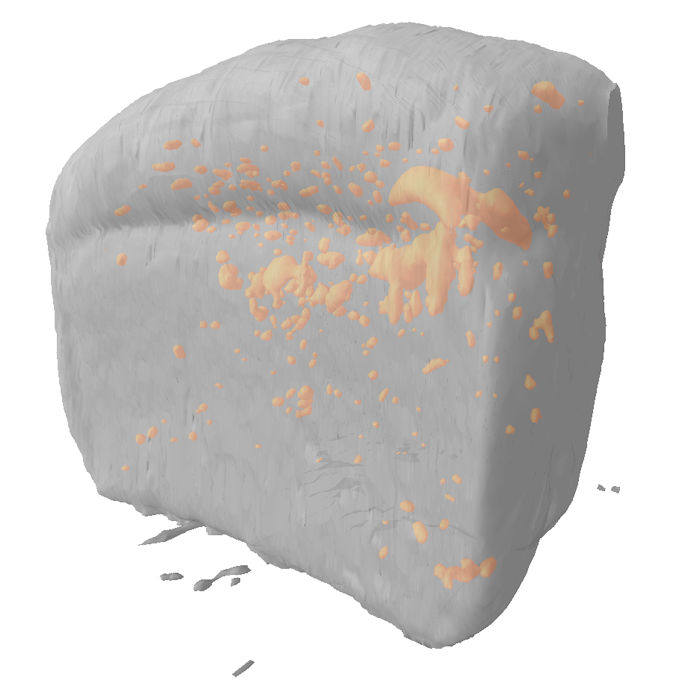
New technology to detect bread quality
By Danny Bayliss - October 2020
In the mind of a food manufacturer, the idea of a flawed or blemished product slipping past quality control to the consumer doesn’t bear thinking about. The food industry often recruits human inspectors to detect and remove damaged goods, such as bruised apples, before they reach the consumer. However, using human inspectors can expose food manufacturers to human limitations: a lapse in concentration or their inability to see inside a product are just two examples – potentially leading to inaccurate or inconsistent product monitoring.
Growing popularity
The industry’s use of computer vision systems is growing – especially for detecting food quality issues. The reason for this becomes obvious when you look at the capabilities of such systems. Not only can they quickly capture, process and analyse images to determine the quality of food products or packaging, but they can also ‘see’ inside food products - as is the case with the in-line X-ray computed tomography (CT) scanners.
X-ray imaging is a non-destructive, computer vision inspection method that can be used to assess the quality characteristics of food products. For product scanning, the operation speed is dependent on the system used. For example, the Mito X-ray CT scanner by Biometic (Italy) can operate at speeds of up to 40 metres/minute when optimised for the right product and application, with a resolution of 0.5 mm.
Putting the X-ray into practice
As part of our research to investigate new technologies, we explored the effectiveness of a new 3D X-ray technology to detect both quality and safety issues in a range of products.
Bread was one such product used in the study. Holes in bread can cause problems on sandwich filling lines when mayonnaise, for example, seeps through the bread’s holes and onto the conveyor belt – creating a potential hygiene issue. The Mito X-ray computed tomography scanner can prevent this problem by detecting it early. We used the Mito scanner provided by Biometic (Italy) to create a 3D image of a bread loaf at processing speeds of 15 metres/minute. It revealed areas containing large holes due to the fermentation process (highlighted in the image below).

The scanner we trialed can work in-situ with impressive efficiency. Combined with an auto-reject algorithm, the fully automated process can sort between acceptable and low-quality products in real time on a production line.
Which new technologies would you like reviewed?
New technologies help drive innovation and assure product safety and quality. Our member-funded 'new technologies’ project reviews recent developments and conducts feasibility studies on promising technologies - highlighting new opportunities for members.
Each year we monitor and evaluate new technologies that our members see as holding the greatest value and potential to help the food industry. Our findings come in the form of research and development reports or bulletins that include case studies of the new tech, a technology newsfile and a patent review.
In our most recent bulletin, you can read more about the X-ray imaging technology (detailed above), and foreign body detection for safety. Find the bulletin (NTB 55 - Quality and foreign body detection using In-line X-ray CT scanning) on the project page (member sign-in required).
We’re always looking for feedback on technologies to explore or review. Submit your suggestions to Danny Bayliss so we can investigate technologies that interest you.
This article on X-ray scanning was first published in Food Management Today.
Support Team
+44(0)1386 842291
support@campdenbri.co.uk
Understand baked products better with our baking courses
Understand baked products better with our baking courses From baking basics to biscuits and beyond - take a look at the full range of high quality training that’s delivered by our experts to develop and grow your workforce‘s skills and talents. All courses can be found here.

